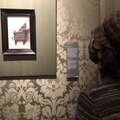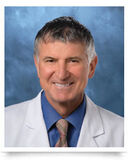Surgeon Q&A: How Is Social Media Helping My Heart Valve Patients?
Written By: Adam Pick, Patient Advocate, Author & Website Founder
Medical Expert: Raymond Singer, MD, Chief of Cardiac Surgery, Einstein Medical Center Montgomery
Published: March 16, 2023
I’m fascinated by how people are using social media.
For example, I just learned that Dr. Raymond Singer, the Chief of Cardiac Surgery at Einstein Medical Center Montgomery – Jefferson Health, is using social media to educate, empower and connect with heart valve patients. At TikTok, Dr. Singer has over 81,000 followers. Amazing!
Many thanks to Dr. Singer for helping patients get educated and empowered about their disease and their treatment options using social media.
I also would like to thank Dr. Singer for his extraordinary support of our patient community over the years.
Related Links:
Keep on tickin’ Dr. Singer!
Adam
P.S. For the deaf and hard of hearing members of our community, I have provided a transcript of this interview below.
Adam: Hi, everybody. It’s Adam with heartvalvesurgery.com. This is a very special interview with a leading heart valve surgeon who’s using social media to help his patients before and after surgery. I am thrilled to be joined by Dr. Raymond Singer who’s the chief of cardiac surgery at Einstein Medical Center Montgomery Jefferson Health in East Norriton, Pennsylvania. During his extraordinary career, Dr. Singer has performed over 6,000 heart operations with more than 3,000 involving some form of valve repair or valve replacement. Dr. Singer, it is great to see you again and thanks for being with us today.
Dr. Singer: Thanks, Adam. It’s great to be with you again. Thank you for everything you’ve been doing with the heartvalvesurgery.com website.
Adam: Yeah, Dr. Singer, I’m really looking forward to this conversation, but first, I want to take a moment and thank you and your team for all of the support of the heartvalvesurgery.com community, and more importantly, the incredible patient care you are providing to people who have been diagnosed with these diseases like aortic stenosis and mitral regurgitation. Thanks for giving them a second chance at life.
Dr. Singer: It’s been my honor, really, 32 years and over 6,000 of these operations so I’m the one who feels blessed.
Adam: Yeah, so Dr. Singer, let’s get into this discussion about social media. As you know, some people love social media. Some people don’t like social media. Some people are in the middle. Personally, I absolutely love what you are doing on social media. Can you share with all the great folks in our community? What are you doing?
Dr. Singer: It started a long time ago in 1999. That’s awfully early for websites, but I started my website, which is heartlungdoc. Throughout most of my career, I did both heart and lung surgery. Now I do only heart surgery. When I first got into it, it was really an opportunity for educating patients, but as things evolved, it wasn’t just having a website. It started to be – my website was in 1999 but Facebook didn’t come out until 2004. This evolved into Facebook and then of course Twitter. I find LinkedIn to be very good because it’s mostly colleagues and other professionals. Then of course now the latest thing is TikTok. I’m actually known as the TikTok Doc, but I’ve got 81,000 followers now on TikTok.
Adam: Dr. Singer, I’ve been on your TikTok. I’ve seen Sheryl Worthington. I’ve seen David Miller talking about their experiences with you. I love the education that you’re providing patients. I’m just curious to know. Are you seeing your patients get anything else out of it besides education?
Dr. Singer: I think what they’re getting out of it is not having as much fear as they may have had. If they were diagnosed with a heart condition, particularly heart valve surgery, it’s scary. They heart terms like cracking the chest or stopping the heart. It’s not in reality what it sounds like. They see real patients who they can relate to who have gone through it only a couple days earlier and are doing well, not complaining of pain. It’s reassuring to them. It’s not just educational but it gives them the empowerment to go forward and to take better care of themselves.
Adam: Dr. Singer, I love how your patients are feeling more empowered. Just to help people understand the reach of what you’re doing on social media and places like TikTok, do you have an example you can provide the patients who are watching this?
Dr. Singer: Yeah, I mean, one of the things that made TikTok take off was the pandemic because in terms of outreach, we weren’t going out to local places to give talks. Of course, the hot topic was COVID. There were a lot of misleading things about it. My very first TikTok was about COVID. Within an hour, I had 800,000 responses, went on to be millions of responses, so reaching out to that many people and trying the best you can to give them a balanced approach, educational approach to what is a very scary topic.
I’ll give you one really important example. During COVID, a lot of patients were afraid to come to the hospital, even if they had chest pain. Sadly, a lot of patients had heart attacks at home because they were just scared to go to a hospital. I had one patient who delayed coming to the hospital with chest pain. He eventually came. He had a massive heart attack. He lost some heart muscle but we were able to emergently operate on him and save him and recover some of that heart muscle. The message of that video was don’t hesitate. Yes, we take precautions at the hospital when it comes to COVID. Don’t you worry about that. If you’re having a problem unrelated to COVID, you need to come to the hospital. You need to seek medical attention. Now, things have gotten better, obviously, but there are still people who are just now scared to death of being anywhere near a hospital.
Adam: Dr. Singer, love the patient stories, empowerment, love the current coverage of things like COVID. I also understand that you’re trying to help demystify or take some of the black box out of what happens in an operating room so patients feel even more comfortable. Can you share what you’re doing there with nurses like Sheila and perfusionists like Tara?
Dr. Singer: I think it’s important for people to understand that it really takes a team. I’ve said it many times and it bears worth repeating that whatever success I may have enjoyed in my career is because of the team that’s around me. They are the quiet heroes behind the mask. The patients don’t often get to know them. I enjoy interviewing a nurse like Sheila or a nurse like Ashley or a nurse like Mary, or Tara who’s a perfusionist to go over what is this heart lung machine, what does it mean to stop your heart, or our physician assistants, and so on and so forth. These are people who will be caring for you every day, and yet, many times the patients may remember just the surgeon and not realize just how critical the entire team is.
Adam: Dr. Singer, you started with your website, evolved into social media, Facebook, TikTok. I’m curious. Where do you see this going in the future?
Dr. Singer: It’s interesting, Adam. Just last night, my 23-year-old daughter said, “Why are you on TikTok? What are you doing on TikTok? This is like a young person’s thing.” I try to explain to her that this has evolved over decades in many ways. You may recall that I’m a bit of a writer. I have 65 op-ed essays. That was the thing of the ‘90s. I mean, if you wrote an essay in the newspaper, people read the newspaper. That was the social media of the day. You don’t think of a newspaper as social media, but it really was. Then you go into the 2000s and Facebook comes along and you start having your own Facebook page. It’s the beginning of what we more commonly refer to social media. Then we get into the next decade and TikTok comes along and it’s videos. I don’t know what the future is going to be, but I’m excited to remain part of it.
Adam: Dr. Singer, you’re in the thick of social media, just like a lot of the patients who are watching this, and they are, like you, like me, we’re getting bombarded by information. When it comes to thinking about one zone therapy for something like valve disease, this is a very serious conversation and research that goes on to figure out what their next step is. What’s your words of advice for folks who are trying to figure out what’s true or not true online?
Dr. Singer: It’s the single most difficult thing. They’re getting bombarded at so many levels, whether it’s billboards and every hospital is in the top whatever, and this report card, whether or not it’s ads that they see in the newspaper and on social media, there is so much content out there. What I would say to patients is take it with a grain of salt. It’s not different than if you’re watching cable news, whether it’s CNN or MSNBC or Fox News because there are obvious biases. My own bias is obviously based on my 30-some years of experience. Maybe I do a mitral valve repair with an approach that’s slightly different than my colleague across the street.
What patients need to do is listen and try to learn and then try to balance that out with what they hear from someone else. It’s sort of like taking it as a second or a third opinion as opposed to just that this is the rule. What I find is that using social media gives me the opportunity to express myself and to explain things to patients in a very calm, very nice way, explaining it so that they will understand it, but having this medium of TikTok or LinkedIn or any of the social media platforms, it really gives you the opportunity to connect. Patients feel that I am connecting with them, just as they feel that way on your website.
Adam: Dr. Singer, TikTok is high velocity social media. I’m real curious to know. Are people watching your videos and then actually reaching out to you for a surgical procedure or a heart valve replacement or a repair?
Dr. Singer: This weekend alone I had three or four patients contact me through TikTok with questions about their care. Now, in two of the instances, I told them that I fully agreed with their doctors and just reaching out to me, which of course, I don’t charge them for, I enjoy doing this, they were so appreciative. Actually, one wrote a beautiful letter to the head of my hospital saying how grateful she was that I was able to respond.
Another gentleman who was coming up from Tampa who has a bicuspid valve, you know a lot about that, right? He was scheduled to have surgery in Tampa, not that he wasn’t comfortable with the hospital or the doctor, but he was that much more comfortable with me. He used to live up here in the Philadelphia area. He knew of the hospital. He had heard of me before, but now he felt this connection through TikTok because I explained about a patient recently who had a bicuspid valve and he said, “Look, I just want you to take care of me.”
Yes, my practice has grown and it’s expanded well beyond the Philadelphia region, not that every patient that I connect with comes flying in from Greece or something like that, but I’ve had patients from Virginia. I’ve patients from Maryland. Now, I have a patient from Florida. It’s actually the second patient that’s come up from Florida. There is that aspect of it. I never dreamed that that would happen. That’s not why I started this. This was all an educational thing.
Adam: Dr. Singer, this has been a wonderful conversation. I’ve got to be honest. There are times where I have felt like I am on an island trying to educate and empower patients across social media. To talk to a physician, in particular a leading heart valve surgeon, about what you’re doing, how you’re helping people with content, with the reach, with the connections, and providing care has been eye opening to say the least. On behalf of all the patients at heartvalvesurgery.com, patients all over the world, thanks so much for being with me today.
Dr. Singer: Adam, thank you. I fully relate to your feelings of being an island. It’s been a long road over some 30 years, yet it’s been worth it. I think what you’re seeing now is that hospital systems understand just how important this type of outreach is. Patients look for it. They enjoy it. They make decisions about their own health based on this type of social media platform. Thank you for all you’ve done. Thank you for your support of my website, heartlungdoc.com, and all of the work that I’ve done on LinkedIn and Facebook and now TikTok.













